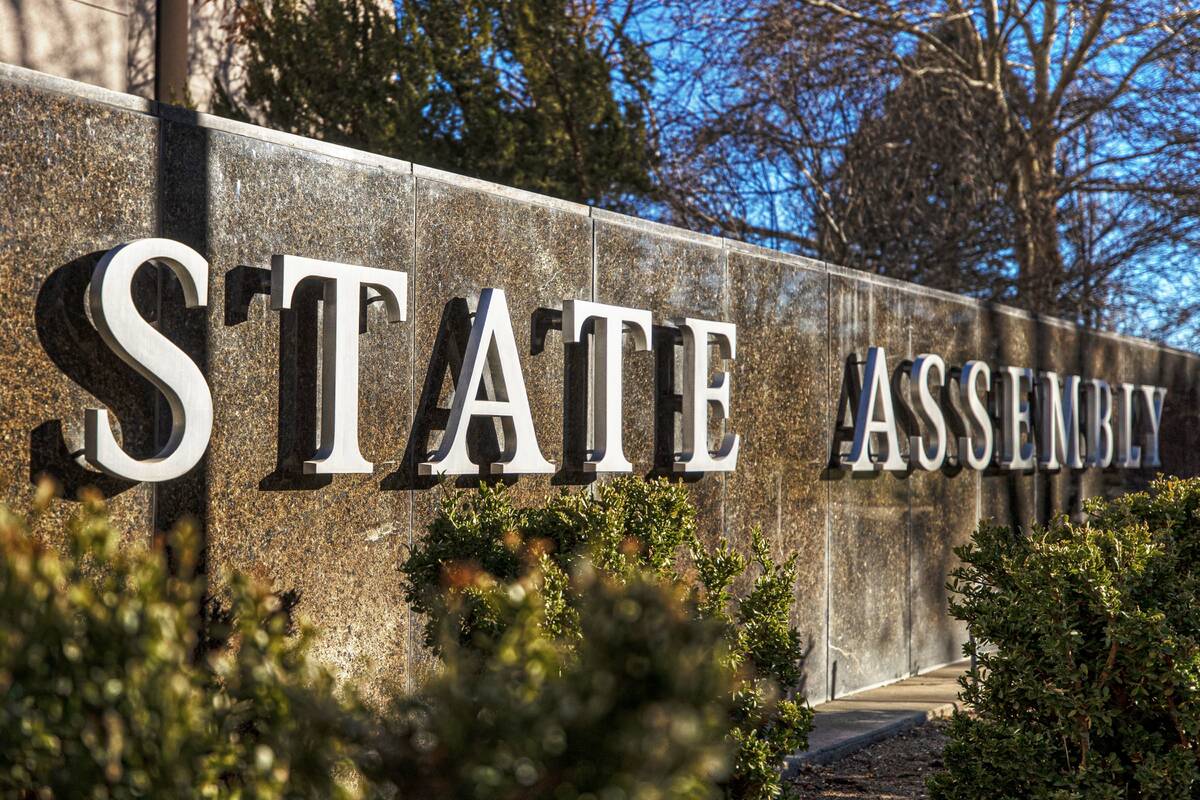Attempts to change Nevada’s workers’ comp process met with pushback
An Assembly bill seeking to improve the state’s workers’ compensation process was met with pushback Tuesday from employees who handle injured workers’ insurance claims.
Assembly Bill 441 aims to fix problems that have arisen for injured workers, insurers and third-party administrators who handle the cases. The bill has received support from both injured workers’ attorneys as well as insurance companies. Employees of smaller third-party administrators objected to a provision of the bill that would allow for injured worker claims to be handled by adjusters outside of Nevada, rather than just inside the state.
“I believe work comp is the last type of insurance that still requires adjusters to live in the state of Nevada,” said Misty Grimmer with the Ferraro Group, representing the Employers Insurance Company, during the Assembly Committee on Commerce and Labor hearing Tuesday afternoon. “Most insurance adjusting is done virtually these days.”
If passed, the bill would expand tracking requirements and clarify certain rules in the workers’ compensation system, said Jason Mills, president-elect of the Nevada Justice Association, who co-presented the legislation. It would make injured workers’ claims more accessible through electronic filing rather than just physical forms at offices in the state. It would also expand the window of time attorneys have to appeal the Nevada Division of Industrial Relations’ rulings from 10 to 30 days.
The legislation would also change the way physicians are selected to evaluate whether or not an injured worker qualifies for disability, and it allows doctors to decline the evaluation if they do not feel qualified to rate the specific injury. An injured worker could also request an independent medical examination to determine if the employee has an injury or to dispute an initial determination of the employee’s injury, according to the bill’s language.
In-state adjusters
Many in-state claims adjusters spoke against the section of the bill that would allow out-of-state adjusters of insurance companies to handle injured workers’ claims, concerned they would lose their jobs.
“It will impact me, my peers, as well as my co-workers,” said Las Vegas resident Tameka Lawson, a supervisor in workers’ compensation. “As a primary breadwinner of my family and a mother of six, one of whom has special needs, the bill could potentially place me out of work and unable to care for my family’s financial needs.”
Chas Nort, president of third-party administrator Nevada Alternative Solutions, said having an in-state office to handle administration provides accountability and enforcement.
“Can you ensure that the person in Minnesota, New York, has five years’ experience or any experience?” Nort said.
Speeding the process
In an interview with the Review-Journal, Mills called the idea that workers’ compensation adjustors would lose their jobs “absurd.” Allowing out-of-state adjusters to handle workers’ compensation claims would help solve a shortage of workers’ compensation adjusters in the state. In Nevada, claims can be adjusted on cars and life insurance policies from employees around the country, yet there are still local adjusters with work, Mills argued.
Victoria Carreon, administrator of the Nevada Division of Industrial Relations, said the bill will require the agency to set up a system to collect data for the reports required by the bill.
They don’t collect that data right now and will have to set up a system to do that. she said. The legislation also allows for a second disability rating. “We currently do an average of 5,349 ratings per year,” she said. “We believe that this addition of allowing a second rating would increase the demand by about 33 percent, and so that will have an impact on our workload.”
Contact Jessica Hill at jehill@reviewjournal.com. Follow @jess_hillyeah on Twitter.


















